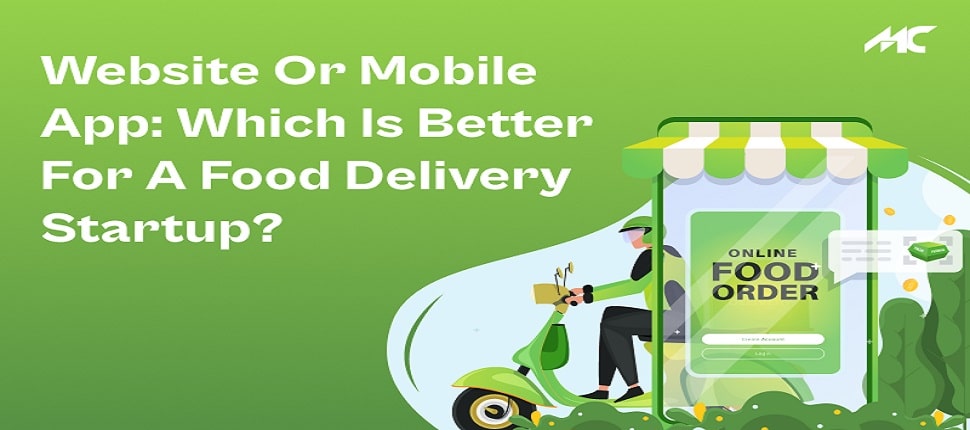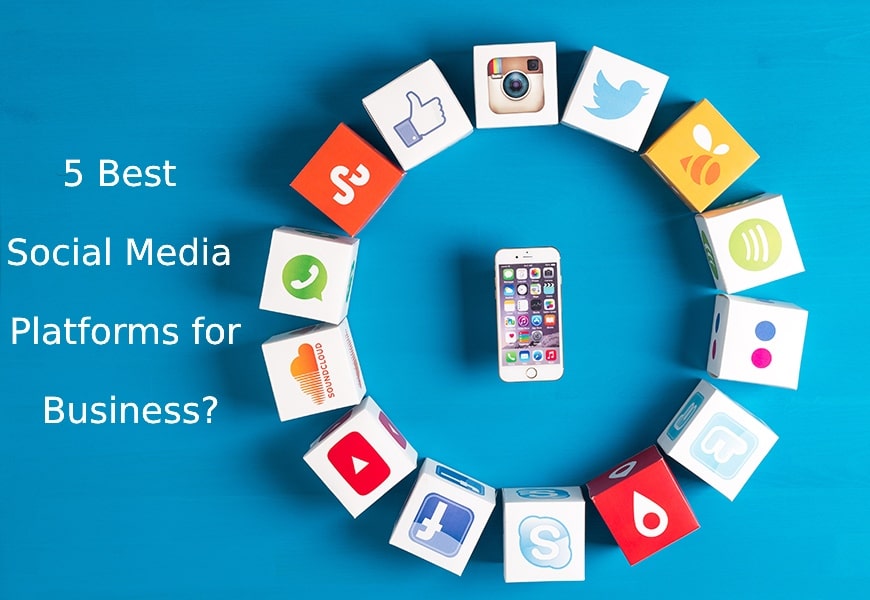It is crucial for any business brand, whether it is new or established, to have an effective online presence via a website or mobile app. The best decision for a business to make when determining whether to build a website or mobile app depends on several variables, including the final goal, the target audience, available money, and necessary features.
Choosing between these two distinctly different mobile mediums relies on which one best serves our needs. Mobile apps are a better choice than websites for e-commerce setups dealing with food ordering, restaurants, cloud kitchens, salon administration, and similar services because they are considerably more user-friendly. On the other hand, a website would be the best option if the main objectives of your company brand are marketing or public relations.
Difference Between Website and Mobile App
Understanding the fundamental points of difference between a website and a mobile app is essential to choosing between the two. A website is made up of links between browser-based HTML pages that can be viewed through WiFi. Nowadays, the majority of websites have access to crucial mobile-specific functionality like call-to-action buttons and location-based mapping. Most websites are accessible using an internet browser and have been customised for mobile devices. A website doesn’t need to be downloaded or updated as everything is automated.
A mobile app, on the other hand, is a programme made specifically to run on a mobile device, like a smartphone or tablet. Web-based apps, native apps, and hybrid apps are the other categories into which mobile apps are divided. Both the App Store and Google Play Store offer the ability to download and update mobile apps. Apps are the best options for anyone who has ideas but researching to know How to Start A New Food Delivery Business In 2023?
Why opt for Mobile Apps Over Websites?
Before getting on concussion first know the Food Delivery App Development Benefits over websites. Here are some points that will help you understand more about which is better.
Popularity: Users tend to favour mobile apps more than websites, and there are also more mobile users than desktop ones.
Personalized Experience: By providing features that are very intuitive to user behaviour, mobile apps deliver a superior personalised experience than websites. This gives consumers the impression that their demands are being met appropriately by the app’s numerous features, improving customer engagement.
Enhanced Tools: Mobile App A/B testing solutions help businesses to continuously improve their In-App user experience by experimenting with features, app flows, and other UI-based adjustments to boost user conversion and retention rates.
Ease Of Sending Notifications: Email open and click rates have been progressively declining in recent years. Push and in-app alerts sent by mobile apps, on the other hand, have significant click-through rates.
Leveraging The Mobile to Its Best: Mobile Apps make the best use of mobile device characteristics such as camera, geolocation, contact list, phone calls, compass, and so on, but websites have many technological limits in making the best use of mobile features.
Offline Operability: Mobile Apps work even when there is no internet connection. Users can get information at any time and from any location thanks to this benefit.
User Friendly: Websites are more difficult to use than mobile apps since they rely on browsers for important functionality, but apps are simple to use and scale with pinch, swipe, and drag features.
Brand Presence: Mobile Apps provide a fresh branding experience for businesses and represent the user’s view of the brand, but a poorly designed website can cause performance issues, cluttered design, and, if over-optimized, things become even worse with difficult-to-read content.
Less Response Time: When compared to web pages, mobile apps offer a substantially faster reaction time. Furthermore, internet pages take time to load, whereas mobile apps store data locally on the device, resulting in a faster response time than websites that use web servers.
A Better CRM Platform: Mobile apps are far superior to websites in terms of customer targeting. They aid in client engagement, retention, and re-targeting by addressing their demands. They provide a more user-friendly interface, making it easier to identify customer preference patterns.
High Conversion Rate: Mobile apps generate more conversions than websites, moving buyers further down the sales funnel. Mobile Apps, being more targeted in nature, tap specific audiences down the funnel, compared to websites, which reach out to a broader set of clients.
Engaging Users: Users spend more time on mobile applications than on web pages because apps are more mobile-friendly.
What Benefits Can Your Business Get From Having a Website?
Competitive Edge: Having a website can help businesses remain ahead of their competitors by increasing brand recognition. A well-optimized website with backlinks from reputable sites aids the company’s trustworthiness.
Cost-Effectiveness: Cost is an essential factor for any business brand. A website can be made for far less money than a mobile app. Additionally, since a website is generic for all operating systems, it does not need to be developed with many variants. Contrarily, creating an app is a time-consuming and expensive procedure.
Easy To Find Online: Websites are significantly simpler to find, and website SEO is simpler than app store optimisation overall.
Easy To Share: Websites are considerably simpler to share than mobile apps. Technically, these are merely URLs, and consumers have no problem viewing a legitimate site with all the required certifications.
Lifecycle: Websites typically have a longer shelf life because they don’t require quick updates, however, mobile apps typically have a shorter shelf life and must be periodically updated to add a wide range of features and remove bugs.
Support & Maintenance: Mobile apps are expensive to create but also expensive to maintain and update. Websites are simpler to maintain as per the owner’s hosting plan, whereas apps initially require more time and effort to design and distribute.
What Are the Obstacles While Using A Website?
When corporate brands first decided to digitise their operations a few years ago, they turned to websites. The use of websites has, however, dramatically declined over time. Brands in business today favour mobile apps
Customer Experience: For customers, using a website to make purchases is time-consuming.
Not operational offline: Websites, unlike mobile apps, cannot be accessed by users when there is no internet connection, which makes conversion and purchases more difficult.
Lack Of Convenience: Websites are unable to effectively use all mobile functionalities. Additionally, the majority of websites are not mobile-friendly.
An Average CRM Platform: Websites are the best medium for spreading brand awareness to a larger audience. But they cannot be used to retarget existing clients or develop new relationships with them.
Which Is A Better Option
A Sensor Tower analysis claims that during the second quarter of 2020. 1 billion new apps were installed for the first time, increasing the motivation for companies to provide app services. However, when it comes to the mobile strategy for a business brand. It’s often not a matter of which of the two is better but rather, perhaps, a two-pronged plan.
Conclusion
We have now entered a digital age in which mobiles have surpassed PCs. And mobile apps offer various things that websites do not. Numerous services that serve users’ daily needs are offered via mobile apps, including rider and salon booking, CRM tracking. And online food delivery from restaurants or cloud kitchens. Websites lag behind applications by a wide margin, and their use will continue to decline. That’s why finding a Restaurant App Development Company and developing an app for your food delivery business is the right option.





